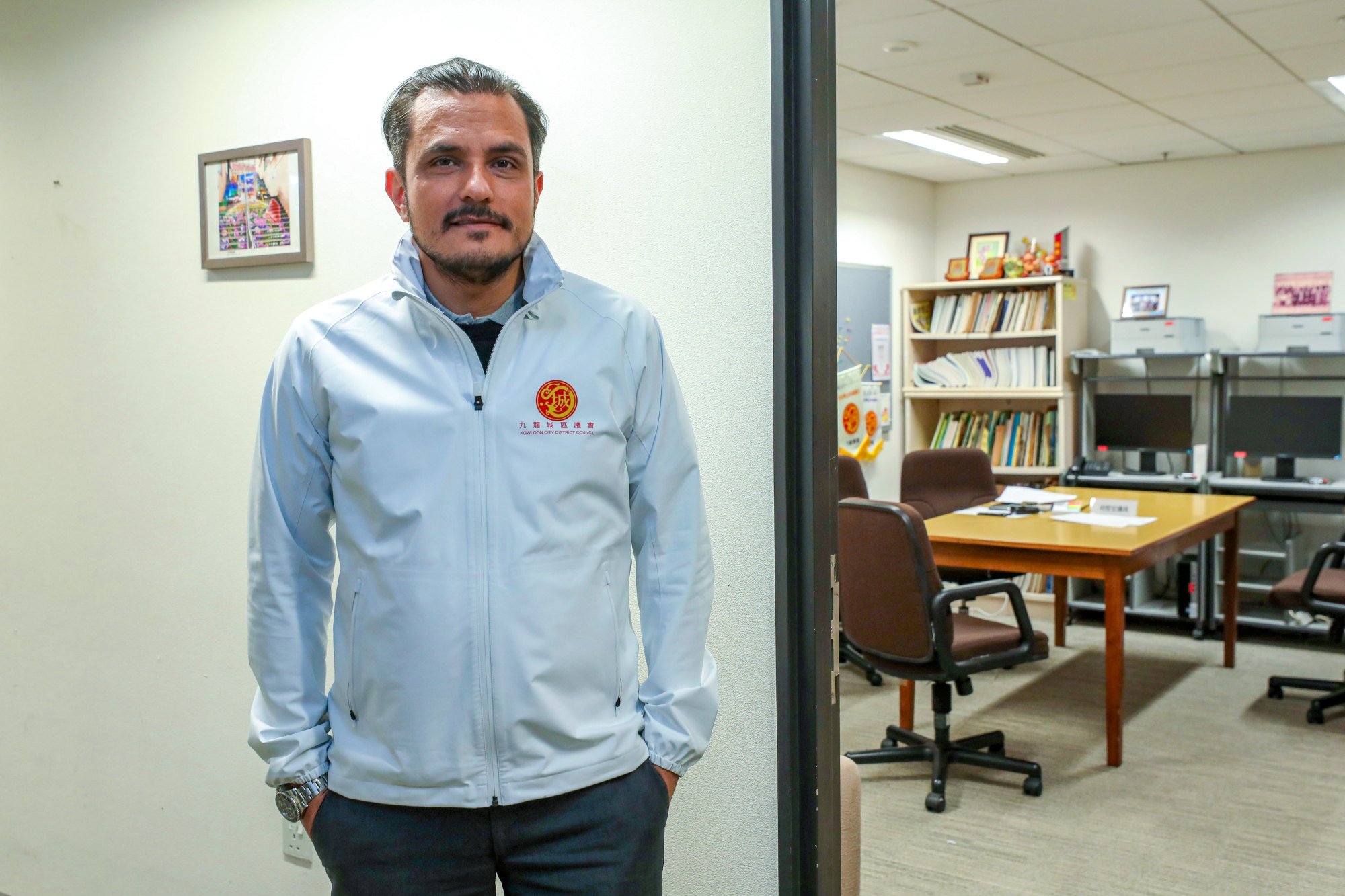
Demand for mainland China travel permits surges as Hong Kong ethnic minority groups hail move
- Hong Kong permanent residents with foreign passports can apply for Beijing’s new five-year multi-entry mainland China travel permit on July 10
The demand for bookings on Tuesday followed the announcement by the National Immigration Administration the previous day, allowing permanent residents of Hong Kong and Macau – regardless of their nationality and occupation – to apply for the permit starting on July 10.
Candidates have to file an online application to China Travel Service (Holdings), the central government agency that issues travel documents for the mainland, and can schedule an appointment at service centres within 28 days starting from Tuesday.
The website at 11.30am said the appointment “quota is full today” although service resumed in the afternoon.
Chief Executive John Lee Ka-chiu said earlier on Tuesday that online reservations were almost full and the government would continue to negotiate with the agency to facilitate applications.
“The new measure can enhance the unique status and advantages of Hong Kong,” he said, highlighting it as an example of the “one country, two systems” governing principle.
“I believe it can increase interaction between non-Chinese permanent residents and mainlanders. It will definitely bring good things to both sides.”
Lee also said the new arrangement could also facilitate the city’s non-Chinese community in contributing to national development.
District councillor Rizwan Ullah said members of the ethnic minority community expressed interest in applying for the travel permits as the current visa application procedures were “complex” and time-consuming.
“We have to prepare many documents beforehand … Even if we have the visa, it takes a long time to clear immigration procedures as officers ask a lot of questions,” he said.
“The Chinese government is now treating us as part of China … With the entry permit, I believe we will be treated differently as we are no longer considered foreigners.”
Ullah said the permit could promote integration as Hong Kong’s ethnic minority members could open bank accounts, set up offices, and apply for driving licences more easily in mainland China.

Under the new arrangement, non-Chinese permit holders can enter the mainland for short-term purposes, such as investment, visiting relatives, tourism, business, seminars and exchanges. They may stay up to 90 days per visit but are barred from working, studying or engaging in news-gathering activities.
They will also enjoy self-service clearance at control points once they complete procedures such as having their fingerprints taken.
Visa holders currently have to use the manual channels, provide fingerprints and fill out entry cards each time.
Ilyas Mohammad, a member of the government-appointed Committee on the Promotion of Racial Harmony, said non-Chinese residents often had to wait several hours to apply for visas and endure long wait times going through immigration under the current arrangement.
He felt the new policy was a good deal as a five-year multi-entry travel permit only cost HK$260 (US$33), while it would be a “win-win” for Hong Kong’s ethnic minority groups and mainland businesses.
“With such convenience, more people will head to mainland China for business and shopping,” he said. “We are very happy that Hong Kong and China have thought about us.”
Jeff Bent, managing director of Worldwide Cruise Terminals, who travels to the mainland more than 10 times each year, told a radio show that he would apply for the new permit, saying it would help him bypass manual immigration channels.
The city government last October announced foreign staff of Hong Kong-registered companies could apply for multiple-entry visas to the mainland for two years or more with priority processing, with non-Chinese permanent residents having a visa validity period of up to five years.
Lawmaker Eunice Yung Hoi-yan from the New People’s Party said the previous policy was limited to business trips, while the new permit covered a wider scope of travelling purposes.
She hoped the scheme could encourage more non-Chinese Hongkongers to visit the mainland.
“It can allow them to know more about the mainland … It serves as a good opportunity to tell good stories of Hong Kong and China,” Yung said.

